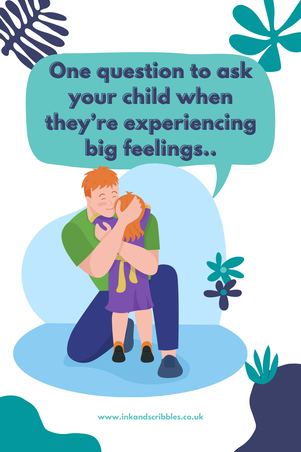In our busy, modern world it is VERY tempting for us as parents to try to sweep our children’s emotions away. Instinctive responses such as ‘you’ll be fine’, ‘there’s no point worrying about it’ or ‘well, you’re good at this subject aren’t you so the exam will be easy’, often leave our mouths before we’ve realised and come from a place of wanting our children to be ok.
It can also be extremely difficult for us emotionally when our child is overwhelmed. We are often unconsciously triggered emotionally, whether that be because of our own past experiences or because we are tired and have an ‘empty tolerance cup’. After a busy day at work, you are likely to become emotionally triggered if, at 6PM the night before the exam, your child comes to you upset and worried. You would certainly not be alone if you rolled your eyes in frustration and exasperatedly said, “And now you tell me!’' Or wearily yawned 'You’ll be fine” and sent them to bed with a ruffle of the hair. What our children really need from us in their emotionally challenging moments is to feel understood. When we try to sweep them on through their feelings at speed, we may get some short-term relief from the discomfort of being around a child with big feelings. I get it. Sometimes the crying, whining or the general energy that emotions bring (the tween door slam gives me an instant tense, tight jaw!) is just too much. But if we always brush them away or try to fix the issue, children can sense our discomfort of big emotions. This becomes a missed opportunity to develop emotional intelligence and teach them healthy habits. Rushing our children through big emotions or ‘fixing’ the issue teaches our children to suppress, avoid or use other unhealthy habits to cope with their big emotions. It can also lead to feelings of shame around experiencing challenging emotions. Although difficult and requiring our own self growth, our children need us to show them that it’s OK to sit with big feelings, accept them and become curious. Reassuringly, research shows that even doing this just some of the time is effective, which gives us some space to be human! It’s important to remember that pushing feelings away tends to lead to them popping back up with increased force! Repeatedly! The more we can support our children in these moments the more their emotional intelligence will grow. Big feelings will settle when children feel listened to and understood, even if the reason for their emotions seem nonsensical to us. One question that can help in a challenging emotional moment is to ask your child, “What do you need?”. “What do you need?”. A simple, powerful question! With just these four words you can:
Try it next time and see what happens!
0 Comments
|
Categories
All
Archives
April 2024
AuthorHey! I'm the founder, creator and voice of Ink and Scribbles. Sharing thoughts on child well-being and parenting that are based on my teaching and parenting experience, and NLP learning. |


 RSS Feed
RSS Feed